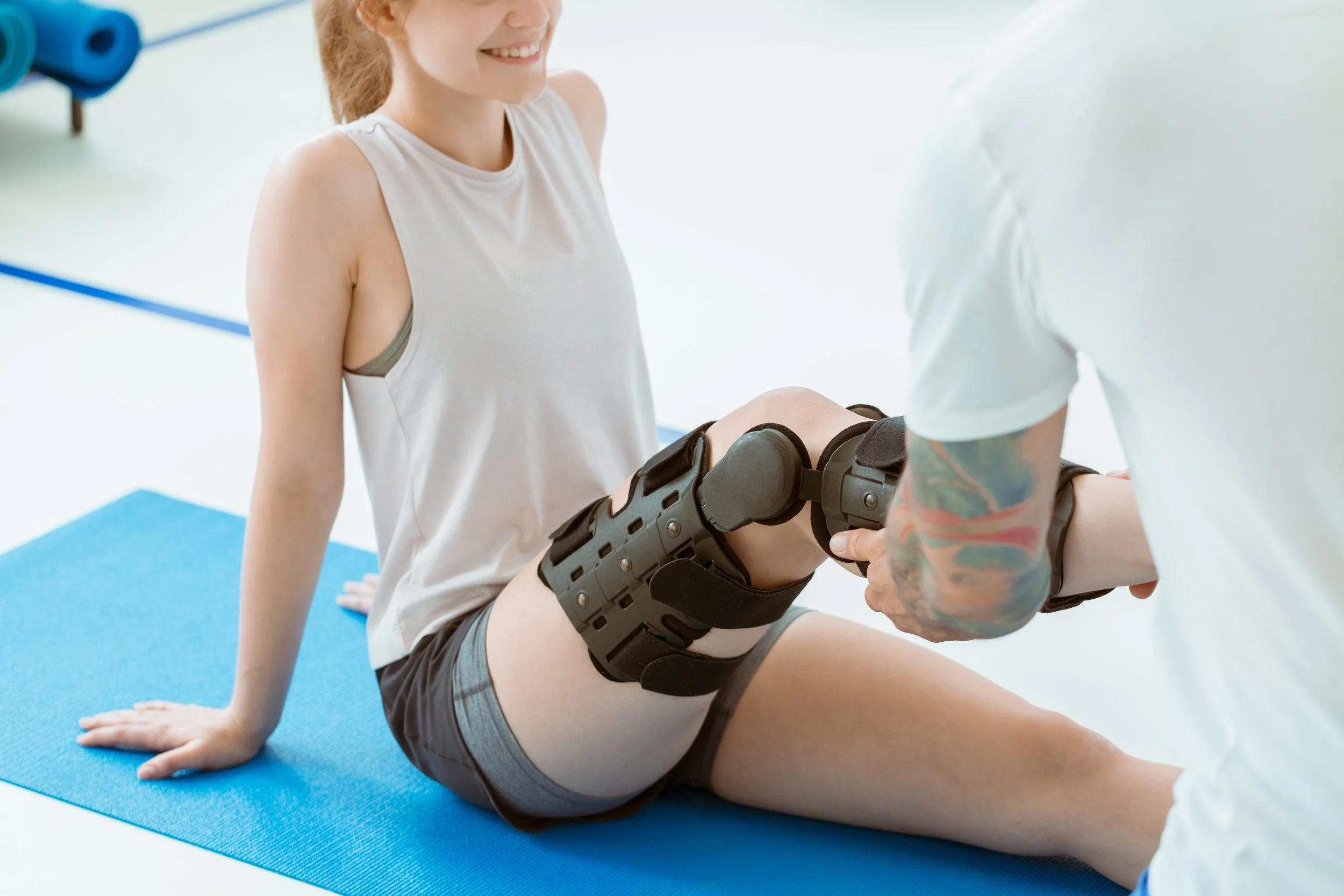Pre- and Post Surgery Rehabilitation in Pooler

A Complete Recovery Starts Before Surgery—and Continues After
Surgery is only one part of your healing journey. How you prepare before surgery and how you recover afterward play a critical role in your long-term results. Without a structured rehabilitation plan, recovery can be unnecessarily slow, painful, and filled with setbacks.
At Savannah Pelvic Health & Wellness in Pooler, we offer comprehensive pre-surgical and post-surgical rehabilitation programs designed to help you regain your strength, restore mobility, and prevent complications. Whether you are preparing for a joint replacement, spinal procedure, or a sports-related surgery, our experienced physical therapists are here to guide you through every stage of recovery—safely and effectively.
Why Rehabilitation Before and After Surgery Matters
Recovering without professional guidance can result in stiffness, muscle weakness, and long-term limitations. Some individuals unknowingly push themselves too hard, too soon—leading to increased risk of reinjury. Others become too inactive, which causes further muscle loss, delayed healing, and joint tightness.
A structured rehabilitation plan ensures a safer recovery by guiding you through movement at the right pace, strengthening the right muscles, and restoring normal function as quickly as possible.
Phase One: Preparing for Surgery Through Prehabilitation
Prehabilitation—rehabilitation before surgery—is a proactive approach that helps your body prepare for the physical demands of the procedure. The stronger and more mobile you are before surgery, the faster and smoother your recovery will be.
Our prehabilitation program focuses on:
- Increasing joint flexibility and mobility to reduce stiffness after surgery
- Strengthening the muscles around the surgical area to improve stability and post-surgical function
- Enhancing balance and coordination to reduce the risk of falls or strain during recovery
- Teaching safe movement patterns to protect healing tissues after surgery
Benefits of prehabilitation include reduced post-surgical pain and swelling, quicker return of flexibility and movement, and better long-term surgical outcomes.
Phase Two: Early Recovery After Surgery
The first few days and weeks following surgery are crucial. Starting rehabilitation early can prevent complications such as scar tissue formation, joint immobility, and muscle atrophy.
Our early post-surgical rehabilitation includes:
- Pain and swelling management through gentle hands-on techniques
- Controlled mobility exercises to encourage circulation and joint movement
- Guidance on using assistive devices like crutches or walkers for safe movement
- Functional training to regain independence in activities like sitting, standing, and walking
Our therapists carefully tailor your treatment plan to your specific surgery and health status to promote a smooth recovery without overexertion.
Phase Three: Restoring Strength, Stability, and Mobility
As healing progresses, rehabilitation shifts toward restoring full strength, range of motion, and confidence in movement. This phase is critical to prevent long-term weakness and ensure a full return to your lifestyle.
Our focus during this phase includes:
- Eliminating residual stiffness and movement limitations
- Rebuilding strength and muscular coordination
- Improving endurance for everyday activities
- Reintroducing physical demands of work, sports, or hobbies safely
We utilize advanced therapy techniques such as manual therapy to reduce scar tissue, targeted strength training for affected muscle groups, and balance exercises to restore stability. For individuals returning to physically demanding jobs or sports, we incorporate specific training to help you return safely and confidently.
What Happens If You Delay Rehabilitation?
Post-surgical rehabilitation is time-sensitive. Delaying therapy can lead to serious complications and make recovery more difficult. Individuals who skip or postpone rehabilitation often experience:
- Ongoing stiffness and loss of joint flexibility
- Chronic pain due to improper healing
- Increased risk of re-injury from weak or imbalanced movement
- Delayed return to normal activities and independence
Every day without proper rehabilitation can extend your healing process. A timely, guided program can shorten your recovery, restore your mobility, and help you regain your life faster.
Common Questions About Surgical Rehabilitation
What is prehabilitation, and do I need it?
Prehabilitation is a program that strengthens your body before surgery to support better outcomes afterward. It is especially helpful for individuals undergoing joint replacements, spine surgeries, and other orthopedic procedures.
When should post-surgical rehabilitation begin?
Most individuals begin post-surgical therapy within a few days of the procedure, depending on the type of surgery. Early movement is essential to prevent complications and promote healing.
How long does post-surgical rehabilitation take?
Rehabilitation timelines vary depending on the procedure and individual health status. Most programs last between six to twelve weeks, with some individuals continuing strengthening exercises beyond that.
Begin Your Recovery with Confidence
The difference between a smooth recovery and months of frustration often comes down to having the right rehabilitation plan. At Savannah Pelvic Health & Wellness in Pooler, our team collaborates with your surgeon and medical providers to create a custom therapy program tailored to your needs and goals.
Availability is limited. Take the first step toward a stronger recovery.
📞 Call Savannah Pelvic Health & Wellness at (912) 420-4910 to schedule your consultation today.
Let us help you recover faster, move better, and return to the life you love—with the support you deserve.
Request an appointment with one of our physical therapists today and get started on your journey toward better health and wellness!
In the end, an active lifestyle is more than possible, even if you struggle with chronic pain. If you are looking to improve your health, strength, and physical activity, look no further – we are here to help.
Patients with bleeding disorders, extreme fear of needles, on medications that prevent clotting or promote excessive coagulation, or with tender points directly near vital neural or vascular tissue may be identified as contraindicated to this treatment by a practitioner.
Success Stories & Testimonials
Jasmine Polk is an excellent physical therapist and a very kind person. She is informative and helpful and works with your body in the way that will help you function best. Definitely recommend.
Bonnie Bertovich
Dr. Jasmine made a great impression in the first session, helping me feel comfortable by getting to know each other. She was informative, thorough, and explained everything clearly. Highly recommended.
Maya Manor
Today’s visit was amazing. We’re almost to the final swing of things and I didn’t expect to be soo tense. Pregnancy really takes a toll on the physical body. I can’t wait to keep coming to see Dr. Polk and using her techniques for our non-medicated birth!
